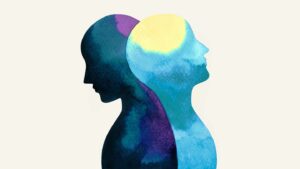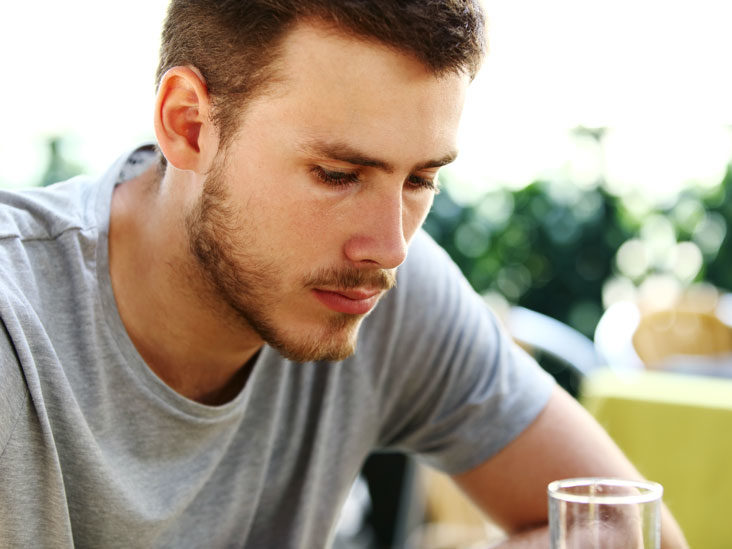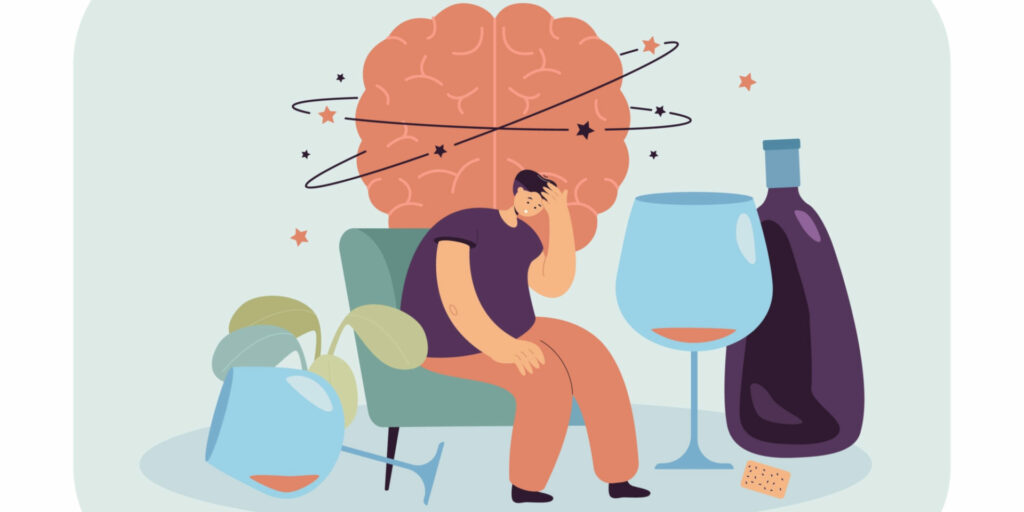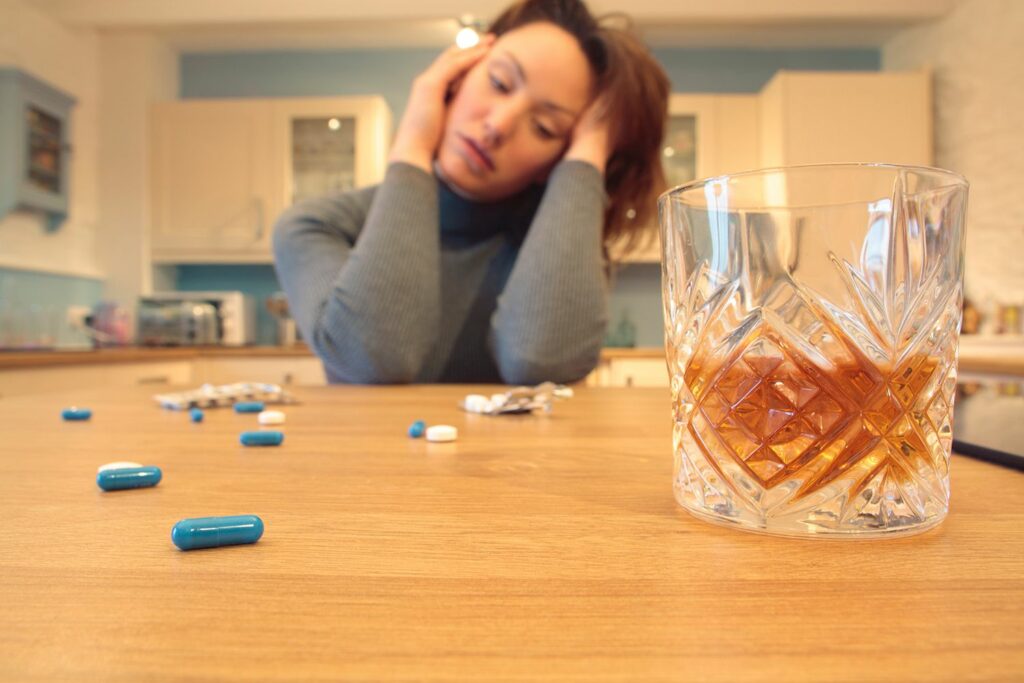Bipolar disorder is a mental illness that affects about 1.5% of the population, according to the National Institutes of Health. It is often characterized by alternating episodes of mania and depression, but it can also include periods where a person’s mood is in between those two states. Alcoholism, meanwhile, is a serious problem that affects nearly 15% of the world, according to the Centers for Disease Control and Prevention. Sufferers can experience problems with alcohol use that range from mild drinking problems to full-blown alcoholism. Both bipolar disorder and alcoholism are serious conditions that can have negative effects on a person’s life. However, there may be a connection between the two conditions that have been largely overlooked. In this article, we will explore how bipolar disorder and alcoholism are connected and what this means for those who suffer from either condition.
Contents
What is Bipolar Disorder?

BP is a mental disorder that causes severe mood swings, including episodes of high energy, mania, and depression.
Alcoholism is often co-occurring with bipolar disorder. The relationship between these two conditions has been the focus of much debate and research. While it is still not fully understood, there appears to be a connection between the two.
One theory suggests that bipolar disorder may cause alcohol abuse. People with bipolar disorder are often impulsive and may engage in risky behavior, such as using alcohol to self-medicate or relieve their mood swings. Alcohol can also increase the intensity and duration of mood swings in people with bipolar disorder.
Another theory suggests that alcohol abuse leads to bipolar disorder. When alcoholism is untreated, it can lead to physical and psychological addiction. As addiction progresses, people with alcoholism may begin to experience symptoms of bipolar disorder, such as extreme mood swings and a lack of restraint in their behavior.
However, it is still not fully understood how the two conditions are connected. More research is needed to determine the specific links between BP and AA, as well as between BP and DRD2 variants (which are associated with alcoholism).
What Is Alcoholism?
Alcoholism is a chronic, relapsing brain disease that results from excessive drinking. It’s the most common type of addiction and can be extremely debilitating. Alcoholism is also a major cause of social and economic problems.
There are three main types of alcoholism: physical, chemical, and sexual. Chemical alcoholism is caused by an imbalance in the neurotransmitters in the brain, which leads to compulsive drinking. Sexual alcoholism is caused by an intense craving for alcohol that goes beyond recreational use. Finally, mental illness is a common co-factor in all types of alcoholism.
People with alcoholism often have trouble controlling their drinking, even when they’re aware of the risks it poses to their health and relationships. They may also experience withdrawal symptoms if they stop drinking abruptly.
People who are diagnosed with alcoholism often need treatment to stabilize their alcohol intake and help them manage their symptoms. Treatment typically includes counseling, group therapy, and pharmacological interventions such as antidepressants or anticonvulsants. There’s also evidence that relapse prevention programs can be very effective in helping people with alcoholism recover from addiction over time.
Relationship Between Bipolar and Alcoholism

The relationship between bipolar disorder and alcoholism is complex and difficult to decipher. Both conditions are characterized by severe mood swings, erratic behavior, and a propensity for risky behaviors. However, researchers believe that there may be a connection between the two conditions.
Bipolar disorder is considered a mental illness characterized by extreme highs and lows in mood, energy, and activity. Alcoholism is a common problem, affecting around 10 percent of the world’s population. It is also a serious medical condition that can lead to addiction and numerous health problems.
Studies suggest that people with bipolar disorder are more likely to develop alcoholism than those who do not have the condition. This link may be due to several factors, including shared genetic factors, environmental influences, and comorbidity (the presence of another mental illness).
People with bipolar disorder often experience intense emotional highs and lows. This cycle can trigger addictive behaviors in some people, including drinking alcohol to ease symptoms or getting high on drugs to manage mood swings. Alcoholism can also lead to mania (an elevated mood) or hypomania (a milder form of mania).
People with bipolar disorder may also be more likely to engage in risky behaviors, including drinking alcohol and using drugs. This is due in part to the fact that alcohol and drugs can provide short-term relief from symptoms or help manage mood swings. However, these behaviors can also lead to addiction and other health problems.
There is still much research to be done on the relationship between bipolar disorder and alcoholism. However, it is clear that these conditions are linked and that both need to be treated seriously.
Does The Presence of Alcoholism Cause Bipolar Disorder?
Bipolar disorder is a mental illness that affects people of all ages. However, one study suggests that the presence of bipolar disorder may be associated with a higher risk of developing alcoholism. Some experts believe that bipolar disorder may be a type of early-stage alcoholism.
The connection between bipolar disorder and alcoholism is still not fully understood. However, researchers believe that there are several reasons why this connection exists. First, bipolar disorder can cause significant changes in mood and behavior. This can lead to alcohol abuse and addiction. Second, individuals with bipolar disorder may have a harder time coping with stress and anxiety. This can lead to difficulties regulating emotions and drinking alcohol to cope with these feelings. Finally, people with bipolar disorder often have difficulty managing their finances. This can lead to problems with gambling and alcohol abuse.
While the connection between bipolar disorder and alcoholism is still being studied, it is important to remember that both conditions are treatable. If you are struggling with either condition, please seek help from a qualified health professional.
How Does Bipolar Disorder and Alcoholism Affect Someone?

The effects of bipolar disorder and alcoholism can be devastating for someone with either condition. Bipolar disorder can cause intense and unstable moods that can lead to dangerous behaviors, such as alcohol abuse. Alcoholism can increase the risk of developing bipolar disorder, and can also worsen the symptoms of bipolar disorder. Both conditions can also lead to significant social and economic problems for people who have them.
Another important effect of bipolar disorder and alcoholism is their impact on health. both conditions can increase the risk of developing other mental health problems, such as anxiety and depression. They can also increase the risk of developing physical health problems, such as heart disease and liver disease.
Sometimes people with bipolar disorder and alcoholism struggle to get the help they need. Both conditions can be difficult to diagnose, and both can be associated with significant stigma. This can make it difficult for people to get the treatment they need.
There is hope, though. Treatment for bipolar disorder and alcoholism can be very effective, and there are many resources available to help people get the help they need.
How Do You Treat Bipolar Disorder and Alcoholism?

There is a connection between bipolar disorder and alcoholism, especially when it comes to the severity of both conditions. People with bipolar disorder are at a higher risk for developing alcoholism, and people who are alcoholics are more likely to have bipolar disorder. However, there is not always a clear link between the two conditions. It is also possible for people to have bipolar disorder without being alcoholics, and for alcoholics to never have had bipolar disorder.
There is no one answer when it comes to treating bipolar disorder and alcoholism. Treatment will vary depending on the individual’s situation and condition. However, some things can be done to help both conditions. For example, treatment for bipolar disorder may include counseling and medication. Alcoholism treatment may include Alcoholics Anonymous or other rehabilitation programs.
Some treatment methods are:
Medications
Medications can help treat both bipolar disorder and alcoholism. For bipolar disorder, medications may include mood stabilizers such as lithium or valproate. These medications help to regulate the person’s moods. For alcoholism, medications may include Alcoholics Anonymous or other rehab programs.
Therapy
Therapy can help people with bipolar disorder and alcoholism to manage their conditions. Also, Therapy can provide support and guidance as people work to understand and cope with their illnesses. Therapy also can help people learn how to manage their behaviors and emotions.
Group Therapy
Group therapy is a type of therapy that is often used for people with bipolar disorder and alcoholism. Also, Group therapy allows people to share their experiences and learn from others who have been through similar challenges. Group therapy can help people feel connected and supported.
Family Therapy
Family therapy can be helpful for people with bipolar disorder and alcoholism. Also, Family therapy can help family members learn how to better support and care for their loved ones. Family therapy can also help family members learn how to cope with their own emotions.
Support Groups
Support groups are groups of people who share common experiences and support one another. Also, Support groups can be helpful for people with bipolar disorder and alcoholism. Support groups can provide social and emotional support as well as information and resources.
Camp
Camp can be a fun and relaxing way for people with bipolar disorder and alcoholism to reconnect with their loved ones and recover. Also, the Camp can provide opportunities for socialization and physical activity as well as support and resources. Also, camp may be a good way for people to learn more about bipolar disorder and alcoholism.
Conclusion
It has been suggested that bipolar and alcoholism are connected, both in terms of their prevalence rates and in terms of the underlying causes. While it is still unclear as to how these two disorders are linked, what is known is that they share some commonalities, such as a genetic component and a propensity for self-medicating with alcohol or drugs. If you or someone you know suffers from either bipolar disorder or alcoholism, please remember that there is help available, whether through treatment programs or support groups.
Hope this article was of help to you! If you are suffering from mental health disorders, you may seek help from Therapy Mantra. We have a team of highly trained and experienced therapists who can provide you with the tools and skills necessary for overcoming mental health disorders. Contact us today to schedule an online therapy or download our free Android or iOS app for more information.


